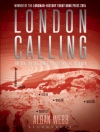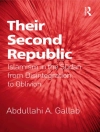The Clamor of Lawyers explores a series of extended public pronouncements that British North American colonial lawyers crafted between 1761 and 1776. Most, though not all, were composed outside of the courtroom and detached from on-going litigation. While they have been studied as political theory, these writings and speeches are rarely viewed as the work of active lawyers, despite the fact that key protagonists in the story of American independence were members of the bar with extensive practices. The American Revolution was, in fact, a lawyers’ revolution.
Peter Charles Hoffer and Williamjames Hull Hoffer broaden our understanding of the role that lawyers played in framing and resolving the British imperial crisis. The revolutionary lawyers, including John Adams’s idol James Otis, Jr., Pennsylvania’s John Dickinson, and Virginians Thomas Jefferson and Patrick Henry, along with Adams and others, deployed the skills of their profession to further the public welfare in challenging times. They were the framers of the American Revolution and the governments that followed. Loyalist lawyers and lawyers for the crown also participated in this public discourse, but because they lost out in the end, their arguments are often slighted or ignored in popular accounts. This division within the colonial legal profession is central to understanding the American Republic that resulted from the Revolution.
表中的内容
Preface
Introduction: A Lawyer’s Revolution
1. ‘The Worst Instrument of Arbitrary Power’
2. ‘The Alienation of the Affection of the Colonies’
3. ‘My Dear Countrymen Rouse Yourselves’
4. ‘A Right Which Nature Has Given to All Men’
5. ‘That These Colonies Are…Free and Independent States’
Conclusion: The Legacy of the Lawyers’ American Revolution
Notes
A Note on Sources
Index
关于作者
Peter Charles Hoffer has taught early American history at Ohio State University, the University of Notre Dame, and Georgia, the latter since 1978. He is the author of John Quincy Adams and the Gag Rule, 1835–1850. Williamjames Hull Hoffer was a Henry Rutgers scholar at Rutgers University in New Brunswick before he entered law school, receiving both his J.D. and Ph.D. He now teaches at Seton Hall University. He is co-author of The Federal Courts: An Essential History.












